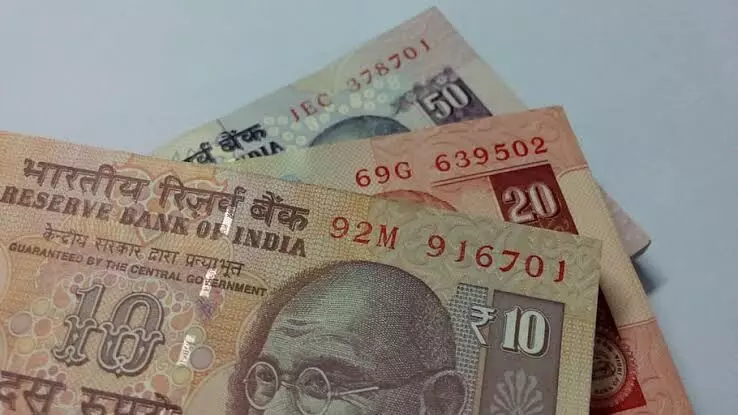Hyderabad RTI activist alleges unauthorised sellers hoarding bundles of Rs 10, Rs 20 notes
He also stated that the RBI could not provide substantial information regarding the illegal sellers
By Newsmeter Network
Hyderabad RTI activist alleges unauthorised sellers hoarding bundles of Rs 10, Rs 20 notes
Hyderabad: Hyderabad-based RTI activist Karim Ansari has alleged that unauthorised currency sellers outside the RBI office here are having access to large bundles of Rs 10 and Rs 20 notes, while the banks are functioning dry.
Karim Ansari said that his RTI queries regarding the shortage and unauthorised sale of the notes in Hyderabad have raised concerns that currency notes were entering the market through unofficial channels.
He also stated that the RBI could not provide substantial information regarding the illegal sellers and couldn’t specify if any investigations have been launched to curb their activities.
Who has the authority to provide new currency to the public?
Mentioning a two-part reply from the Reserve Bank of India (RBI), Karim Ansari stated that Hyderabad banks—including branches of SBI, Union Bank, HDFC and Bank of Baroda—were not supplying fresh bundles of these notes, despite repeated attempts.
“Meanwhile, private sellers near the RBI office were openly reselling these notes at a markup, suggesting that currency notes were entering the market through unofficial channels,” he alleged.
‘Rs 2,000 worth of Rs 20 notes being sold for Rs 2,400’
“While common people are struggling to get minimum sections of Rs 10 and Rs 20 notes from banks, private sellers in Hyderabad are openly offering these denominations in full bundles at higher prices—for example, Rs 2,000 worth of Rs 20 notes is being sold for Rs 2,400, and Rs 1,000 worth of Rs 10 notes for Rs 1,500,” said Karim Ansari.
The query probed into the RBI’s official procedures, monitoring mechanisms, records of complaints, and whether anyone was officially authorised to sell currency directly to the public.
What is the role of banks in stopping private dealers from hoarding currency exchanges?
In the reply, Karim stated, the RBI reiterated that currency chests supply notes to banks based on need, and all branches should provide new currency to the public without discrimination.
There are clear directions in the ‘Facility for Exchange of Notes and Coins’ master circular, and branches are supposed to stop money changers or professional dealers from monopolising exchange counters, Karim Ansari stated.
What information does RBI have about illegitimate banking outlets?
In the second part, the query focused on complaints about leaks or unauthorised sales.
However, Karim said, the RBI stated that they had no information for the period he specified. If RBI itself says such information is ‘not available’ with them, then which authority is actually responsible for monitoring and preventing such practices?
“They said there were no internal/external investigations ongoing regarding leakage or collusion at the time, and no private individual or entity was authorised by RBI to sell notes outside legitimate banking channels,” he said.
In some replies, the RBI had stated RTI Act exemptions (section 8(1)(e) and 8(1)(j)), denying more detailed disclosures, especially on matters apparently ‘appropriately disposed off following the due process.’
‘Lack of accountability’
The lack of serious follow-up or transparency is concerning, particularly given the evidence of illegal street sales and bank unavailability, the social activist said.
“Shockingly, these sellers are operating right near the RBI Hyderabad office, and this activity has been going on for several years. The question arises: are the authorities unaware of this, or have they chosen not to act?” he said.
‘Internal monitoring failure’
Overall, despite procedural compliance and persistence, the information RBI gave is vague and generic, the RTI activist said.
“Their lack of records on note leakage complaints—even when such activities are happening in full public view—suggests either internal monitoring failures or unwillingness to acknowledge the problem,” he said.
He stated that although rules exist on paper, ordinary citizens are struggling to get even small currency sections, while unauthorised sellers profit without fear of regulatory action.
“The public deserves clear answers and strict action, as ordinary citizens are the ones facing hardship while private sellers profit from essential currency circulation,” Karim said.